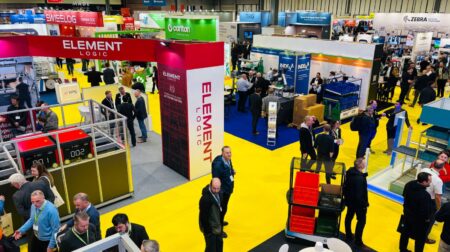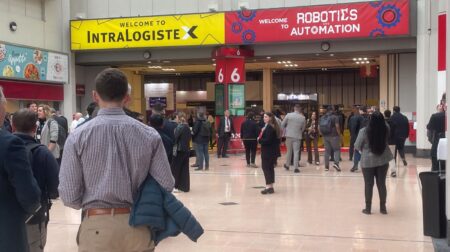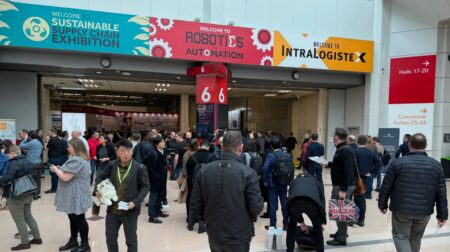With entries for Robotics & Automation Awards 2025 now open, Robotics & Automation Magazine has launched an exclusive series of Q&A interviews with the expert panel of judges responsible for evaluating this year’s submissions.
Over the coming weeks and months, the magazine will spotlight each judge – a dynamic mix of thought leaders, technical specialists and business strategists drawn from across the robotics, automation, AI and smart manufacturing sectors – to explore their backgrounds, industry outlooks and what they’ll be looking for in an award-winning entry.
From end users and integrators to researchers and investors, this year’s panel represents a diverse blend of practical and academic expertise – all of which will help identify the most transformative, scalable and commercially viable innovations driving the next era of automation and intelligent systems.
The first judge to feature in the series is Will Kinghorn, technology adoption specialist – robotics and automation at Made Smarter, where he advises and supports manufacturing companies in adopting new technologies.
He is also a chartered manufacturing engineer with the IMechE, with a background in the aerospace industry, where he developed and implemented new manufacturing techniques including automation, robotics, advanced machining, inspection and welding.
Kinghorn is the author of Digital Transformation in Your Manufacturing Business – A Made Smarter Guide.
Speaking to Robotics & Automation Magazine, Kinghorn reflected on the vital role of automation in ensuring industrial resilience and explained why practical impact, scalability and collaboration will be key markers of excellence among this year’s entries.

Name: Will Kinghorn
Job title: Technology adoption specialist – robotics and automation
Organisation: Made Smarter
How does your professional background align with the Robotics & Automation Awards’ goal of recognising excellence in automation and intelligent technologies?
By far the most important aspect of any technology project is the people. My background – originally in developing new manufacturing technologies in the aerospace industry, and now helping smaller companies with digital transformation – has always focused on working with people to solve problems, understanding their concerns and empowering them to deliver change. The Robotics & Automation Awards play an important role in celebrating the people behind the progress.
What current trends or technologies in robotics and automation are you most excited about, and how do you anticipate seeing them reflected in this year’s entries?
I’m most excited about anything that makes robotics and automation more accessible to a wider range of companies. Developments in lower-cost robots, easier integration and low-code programming will all have a major impact. We’ve also all seen how rapidly artificial intelligence is advancing, particularly with large language models. I’m looking forward to seeing how these tools are being applied in the field of robotics and automation.
From your perspective as a judge, what qualities will distinguish a truly standout submission?
I’m always looking for the practical impacts that projects have had. It’s great to see groundbreaking technology concepts in development, but it’s even better to see them implemented in the real world and to understand how teams have overcome the challenges involved.
How do industry awards such as these help foster innovation, investment and commercialisation in the robotics and automation sector?
Primarily, they raise the profile of the hard-working people developing new solutions. Celebrating these successes is a powerful way to demonstrate what’s possible and to encourage others to pursue their own innovations. These awards are not just for large companies – they are for everyone.
Can you share an example of a robotics or automation innovation – either recent or historic – that you believe has had a lasting impact on the way industries operate?
The growth of logistics operations in recent years would not have been possible without automation throughout the warehouse. Although this isn’t an area I’ve personally worked in, I can clearly see the impact that warehouse robotics has had across all industries. Autonomous mobile robots, automated storage and retrieval systems, complex conveyor networks and advanced software all contribute to ensuring that components arrive on time for production, consumers receive their products quickly, and warehouse space is used efficiently.
What advice would you give to companies and individuals submitting an entry this year?
Be clear about what the project set out to achieve and what the results were. Judges may not be from the same industry, so it’s important to explain the challenge and provide relevant background. Tell the story: where you started, what you learned and what you delivered.
Achievements and innovations in retail and e-commerce, healthcare and pharmaceuticals, food and beverage, automotive, transport & logistics, and more will be celebrated at the Robotics & Automation Awards on 29 October 2025 at De Vere Grand Connaught Rooms in London. Visit www.roboticsandautomationawards.co.uk to learn more about this unmissable event for the UK’s robotics and automation sectors!








